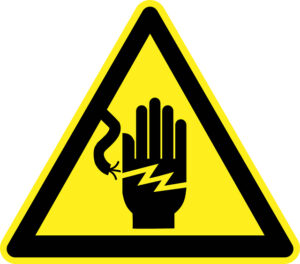
With the number of fires due to electrical short circuits showing an alarming increase, time has come for the recommendation by the Mumbai Fire Brigade and seconded by the BMC, for mandatory electrical audits in all buildings/establishments to be implemented with zero compromise on safety. A look at why electrical audits are beneficial and in the overall interests of people
There cannot be enough morbidity in facts and figures to describe how electrical short circuits have emerged as the single largest cause of fires in Mumbai. 33 persons have died in fire incidents this year so far which is alarmingly more by two-and-half times than in 2022, and mind you, the year is not through yet. Official figures say there is a whopping 154% jump in fire accident fatalities in Mumbai this year.
While Mumbai Fire Brigade attributes majority blazes to short-circuit, it also feels and rightly so, that electrical audits, similar to biannual fire audits, are mandatory in view of this situation. The BMC officials have perforce fallen in line and has been coordinating with the Chief Electrical Inspector, pushing for electrical audits to be made compulsory in all buildings. The BMC’s premise is knowing the cause of the problem at source can help tackle it to mitigate it. The recent fires Goregaon, Girgaum, Santacruz and Vashi have pointed at electrical short circuit as the culprit.
Frequency of audits Electrical safety audits are in the interest of the citizens. They should be conducted regularly to ensure that the electrical systems and equipment are safe to use and comply with the latest regulations and standards. The frequency of the audit depends on various factors, including the age of the equipment, the type of industry, the complexity of the electrical systems, and the level of risk involved.
In India, it is recommended to conduct an electrical safety audit at least once a year. However, some industries may require more frequent audits, such as those involved in hazardous or high-risk activities. It is also important to conduct an audit whenever there is a significant change in the electrical systems or equipment. A team of experienced safety consultants can assess your electrical systems and equipment and provide recommendations to improve safety and compliance. However, it is always important to research and evaluate multiple safety consultants to find the best fit for specific needs.
Electrical hazards can cause serious injuries or fatalities if not adequately controlled. To prevent such incidents, it is necessary to conduct regular electrical safety audits. An electrical safety audit helps to identify potential electrical hazards and implement corrective actions to mitigate them. It is a systematic approach to evaluate potential hazards and to recommend suggestions for improvement. It is an important tool for identifying areas of risks, hazards and potential accidents in plants, deterioration of standards, for determining actions to minimize hazards. As has been borne frequently, Mumbai with its typical urban landscape calls for regular electrical audits.
Electrical safety matters because electricity is powerful and potentially harmful. Mishandled electricity can cause serious injury or death, so keeping members/occupants of a building safe at work calls for at least basic electrical safety training. However, the fact is majority refuses to learn or do not pay enough attention to the need for electrical inspection/audit.
Handling extra power load
At the time of construction, the developer/builder provides an electrical load considering the basis needs of electrical equipment. However, over a period, it is known that people keep increasing the electrical installation but do not check as to whether the electrical wiring, provided load or capacity is sufficient to meet the requirement. The problems are associated with power quality within the building and the amount of electrical loads at a time of building erection and loads getting added without doing an analysis if the building wiring provided can handle the extra load. The problems could be due to bad earthing, incorrect wiring, and deficient current carrying capacity of wiring, very old electrical wiring, and unsafe electrical wiring. Other challenges faced by any establishment is continuously rising energy costs and ever-increasing electricity bills. The electrical safety audit can help identify the electrical loads and who seep energy without the resident/occupant’s knowledge.
An electrical safety audit is a systematic and comprehensive evaluation of an organization’s electrical systems, equipment, and practices to ensure that they meet relevant safety standards and regulations. The focus on safety will include:
* Maintenance of electrical equipment, including switchgear, transformers, motors, and other electrical components. Evaluation of installation and grounding of electrical systems.
* Identifying potential electrical hazards and assess the risk of injury or damage from these hazards.
* Evaluating the establishment’s maintenance program for electrical equipment and systems to ensure that they are properly maintained and in good working condition.
* Reviewing the establishment’s compliance with relevant electrical safety regulations and standards, including national and local codes and industry standards.
* Evaluating the establishment’s training programs for electrical safety, including training on electrical hazard identification and control, electrical equipment operation and maintenance, and electrical safety procedures.

A Column By
Raju Korti – Editor
The Resource 24X7
A Journalist With 4 Decades of Experience With Leading Media Houses.
